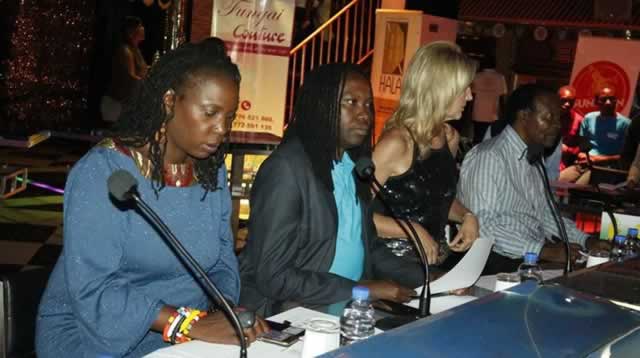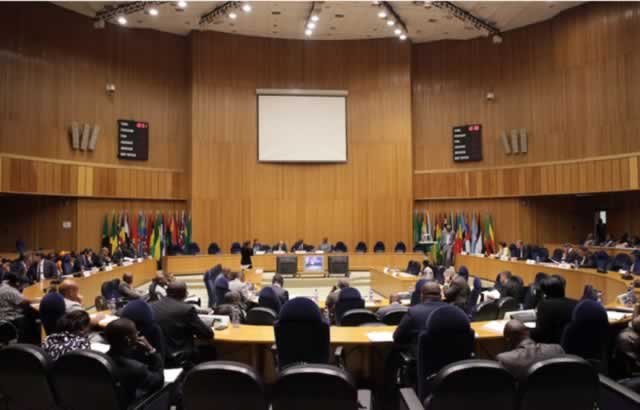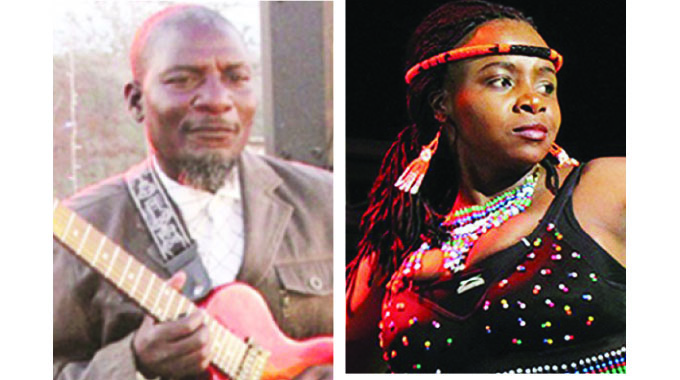How bright is ‘StarBrite’?

Tafadzwa Zimoyo Arts Reporter
A television reality show features talent culled from the ranks of ordinary people, not professionally trained actors.
According to Study.com, producers typically shoot hundreds of hours of footage per episode and use creative editing to create a narrative thread. Subjects may be given some elementary directions off-screen, but the point is to allow the performers to act and react as normally as possible.
A reality show is not to be confused with a documentary in which the subjects are asked to ignore the cameras. Many reality producers encourage participants to play to the cameras as characters or use private taped conversations, called confessionals, as a form of narration.
For many years, the television industry favoured scripted television programmes over the unpredictable and potentially controversial reality show form.
Early game shows featuring contestants selected from the audience also provided moments of unscripted reality.
In Zimbabwe, there are now many reality shows sprouting up with most of them focusing on talent search. These include “StarBrite”, “Zim Got Talent”, “Zim Talent Hunt”, “DreamStar” and “Breakdown Dance” search among others.
Most of these programmes focus on music and dance, while other genres are left out.
In the United States, the famous Kardashian family has a show which is watched by millions across the globe and surprisingly it is about the family’s lifestyle, but still has a serious entertainment value.
Locally, “StarBrite”, is a decade old although it has been running consecutively for five years, with the first and second editions taking place in the early 1990s before most other reality shows began.
The show is a non-profit organisation whose primary objective is to identify and develop local talent across the 10 provinces of Zimbabwe.
It goes beyond talent search and rewarding the ultimate winners by identifying and developing talent at each level of the competition through carefully crafted training, assignments, research modules and time planning.
As a progressive and forward looking organisation, “StarBrite” increases the levels of competition every year, designing each level to help prepare the contestants to become self-contained artists after the competition is over, regardless of whether or not a contestant wins the show.
Of late, the show has faced some criticism with some local television viewers that it is not changing and lacks creativity but show founder-member Barney Mpariwa said he was happy so far with the production.
In an interview, Mpariwa said the major challenge the show has faced is cynicism from some sections of the media, which negatively affects the opinion of the public and potential sponsors.
“StarBrite is currently the biggest reality show in the country, producing real artists at the end of each season, but the media never seems to take cognisance of this great phenomenon. Some quarters of the media tend to hold the production to a higher regard than the resources available would permit.
“They conveniently ignore the state of the economy and that for the show to exist; it is an effort of a few dedicated people using their own resources for the benefit of many Zimbabweans. Although sponsors are virtually non-existent, we have been both consistent and practical about developing talent and capacity building for the winners,” he said.
Asked why there is no change compared to previous years, Mpariwa said he was not sure about that because every year they bring a significant change to the competition.
“For example, the final challenges for a given year become the quarter-final challenges for the next year meaning that each year’s semi-finals and finals will have completely new challenges. We are increasingly stretching the mind and talent of contestants progressively. We have added other creative elements to the competition that include fashion show which were not there before. Public participation used to be by way of texting the contestant number through a voting platform, but public participation is now through social media and results are now announced on the finals, not later as was the case before. That is progressive change. So I do not understand what you are referring to as lack of change,” he said.
Critics referred to the show as a low budget production because of the stage setting, the lightning and the wardrobe among others which tend to push away the potential sponsors and corporate world.
Some even pointed out the show organisers don’t give room for developments and ideas and end up producing the same concept and style each year.
There was an outcry during preliminaries with how the judges were dressed and how they presented themselves to the audience and the contestants.
Surprisingly, Mpariwa said “StarBrite” is honoured to have a growing list of partners from the beauty industry who do make-up for judges.
“At present our judges have free reign of their decorum. They dress themselves. ‘StarBrite’ draws its judges from a vast cross section on the Zimbabwean society.
The preliminaries will have a guest judge from each of the provinces as well as a constant judge from “StarBrite”. The criteria revolve around finding people who can be objective and non partisan, who can identify potential talent. The judges become more diverse as the competition progresses, to include people from general public to critics, scholars and professionals so that the results and contributions are more representative and not biased,” he said.
He said was blessed to work with different set designers and persons of various specialties.
“Each year brings different talents and skills to the set process. If you have watched the show since the first season, you will have realized that no finals have been the same as the year before. This year will be no different. There is always room for,” he said.
Mpariwa said there is no secret to their long stay in the industry.
“We draw our success from the passion we have and hard work and resilience to uninformed criticism.
“We respect and appreciating the vast of talented Zimbabweans who in turn appreciate our efforts. We draw our satisfaction from knowing that even though we don’t have a lot of money, we do with the little bit we. It is that insatiable desire to make a difference in someone’s life that gives us satisfaction which is second to none.”
Again some sections noted that the show is filmed under powerful HD, but there still some mishaps when it comes out on television. That blame can be shifted to the television station ZBC which are still in the process of digitalisation which is also a factor hindering in good quality and sometimes sound system.
“We are doing our best to move with the times so that our audience can enjoy better viewing of their favourite talent show. We do appreciate the efforts by our national broadcaster to move to modernizing broadcasting technology. We believe that soon they will have completed their digitalisation, which is not a small matter.
“We support their efforts and will continue to prepare programmes that will be good and ready when they complete their digitalisation. ZBC has not been spared from the hardships that the country is experiencing at the moment. Like them, we are not folding our hands waiting for the situation to improve, but we are doing our part in changing the situation while achieving realisable goals,” cited StarBrite director.
He affirmed that they are moving up with the 21st century.
“At StarBrite we are definitely moving with the times even though there are extenuating factors that sometimes might not reflect this. You just need to see how many artists are globe-trotting doing festivals and shows around the world as a result of taking advantage of technology and social media.
“You only need to see how many people are computer literate and the emphasis that our education system is placing on global thinking. We definitely are in there with the rest of the world. We need to take pride in our own and not be good at looking that which is perceived as not good.
“However,” he said without pre-emptying much, “We intend to make the next season the best of all our seasons to date.
“We are excited about the new format it will take as we roll out the strategy. We are increasing prizes and value with each year. We have so far given out air tickets to US, cars, television screens, residential stands, complete building material for houses, recording contracts, music scholarships, mentorship programmes, money, iPads, tablets, hampers, holiday packages, and health cover packages. No other show has been so diverse in its prizes but we continue to seek ways and means to increase value in our ultimate winners which will include international collaborations, recording contracts overseas,” he said.
He said they embrace competition from others.
Although every dark cloud has a silver lining, Mpariwa, a journalist by professional, said they are also active in community projects.
“We have led a clean-up campaign with the help of several corporate. We have cleaned up First Street, painted the bins, and donated over 10 000 bricks for repaving the street and planted flowers.
“Each year we do a hospital visit to Harare Hospital children’s ward to give out toys and goodies to the hospitalised kids and just try to cheer them up.
“This visit helps to give both relief to
the kids as well as afford our contestants the opportunity to connect with kids needing a little cheer. We adopted a
home where Gogo Gwanzura of Mufakose houses 42 orphans in a two bed-roomed home.
“No one is perfect but we are doing our best and believe it is the way to go.”







Comments